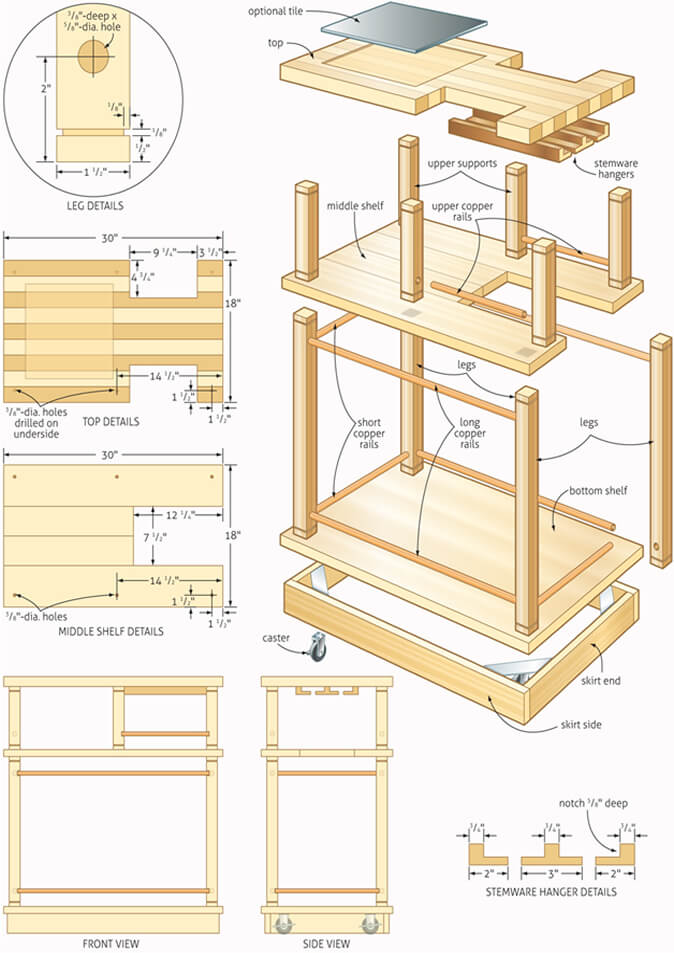A long hot shower is one of the most luxurious modern guilty pleasures that most of us take for granted. If you’ve never had a water heater shut off in the middle of a shower, leaving you to rush through the icy needles of death stinging your skin to finish cleaning in record time, you’re one of the lucky ones.
Knowing how long it takes your water heater to heat up is one of the best ways to create a bath schedule for the whole family, ensuring that everyone gets the time to enjoy hot showers. However, multiple factors can affect a water heater’s ability to reheat, including the tank’s size, type, and heating source.
Keep reading as we answer how long does it take a water heater to heat up, including all the factors that can affect the time.
How Long Does It Take A Water Heater To Heat Up?
A bit later, we’ll look at what factors affect how long it takes a water heater to warm up. But, for the moment, we’re going to look at the different types of water heaters and their expected heat times.
Gas Water Heater
Gas water heaters are one of the most popular choices, primarily due to their lower cost of operation. These heaters have gas burners at the bottom of the tank that heats the water sitting above.
Because of the direct flame, gas water heaters heat up significantly faster than other heater types. The exact time will depend on the tank’s water capacity – 30 to 40 minutes for a 40-gallon tank, 40 to 50 minutes for a 50-gallon heater, or 60 to 70 minutes for an 80-gallon heater.
Electric Water Heaters
Electric water heaters are also a popular choice for homes. Rather than using a gas flame to heat the water, these heaters use electric heating elements (similar to what’s in an oven or toaster).
Because there is a less direct heat source for these heaters, it can take longer for the water to warm up. For example, a 40-gallon tank can take 60 to 80 minutes to heat up; a 50-gallon tank can take 145 to 150 minutes or up to 120 to 130 minutes to warm up an 80-gallon tank.
Solar Water Heaters
Solar water heaters get their energy from the sun, with a backup electric water heater to ensure you always have hot water, even when the sun isn’t out. These types can take the same amount of time as an electric heater to heat the water.
However, some types of solar heaters are strictly solar. So, of course, if you live in a climate that experiences many cloudy days, you could find yourself on a limited supply of hot water – or none on some days.
Tankless Water Heaters
Many homeowners are starting to prefer the conveniences of tankless water heaters, which you can get as electric or gas-powered. However, the type of heating element will again affect the time it will take your water to heat.
Tankless gas heaters warm the water as needed. The exciting thing about this is that the main factor that will affect how fast your water heats will be the distance between the heater and the faucet or appliance.
Typically, it only takes a matter of seconds for your water to heat up. And best of all, the water will stay hot as long as you have it running. Who wouldn’t enjoy the prospect of never running out of hot water again?
Tankless electric heaters work the same way, heating water as needed. However, in terms of time, while electric tankless heaters also heat your water fast, it can take a few seconds longer than gas.
What Influences Heating Time?
Now that we’ve covered the different types of heating sources for water heaters, let’s look at some factors that can affect how long your heater can take to heat up.
Temperature Rise
The water temperature as it enters the tank is a significant factor that will affect how long it will take your water to heat – temperature rise. Temperature rise – or inlet water temperature -will be an important factor to weigh depending on climate.
To calculate the temperature rise, take the desired water temperature and subtract it from the temperature of the incoming water. The difference will be the TR. The higher the TR, the longer it will take your water to heat.
This issue won’t be a problem with tank heaters since the water stores inside the tank as it heats up.
But since tankless heaters do not hold water long enough to heat it, the starting temperature will matter. When the incoming water is at a low temperature, it can take longer before it reaches the desired temperature.
However, both tankless and tank water heaters are also vulnerable to extreme ambient cold temperatures. Therefore, if the area where you store the heater gets very cold, it could affect the function of the heater.
First Hour Rating
The FHR – First Hour Rating – is the gallon quantity the heater delivers in the first hour. This rating reflects the water heater’s ability to refill and heat a full tank of water.
When your water heater has a high FHR, you don’t have to wait as long for your water to heat back up after using the hot water. This number is the calculation of the tank’s capacity and the type and size of the heating source.
Type Of Fuel
The type of power source for the water heater can also affect recovery times. For example, we mentioned earlier that water heaters fueled by gas get to the ideal temperature faster than electric types.
Size Of Water Heater
Your water heater size can also affect the time it takes for the water to heat. A larger tank takes longer because there’s a larger quantity. But these bigger tanks usually also have an additional burner to account for the extra amount.
Regardless, smaller tanks will heat faster than larger tanks. However, remember this – smaller tanks will run out of water more quickly. Therefore, it may be worth waiting a bit longer to heat a large amount than having to repeatedly delay tasks to wait for a small tank to refill and heat.
Age
The heater’s age can also affect the time it will take your water heater to warm the water—the newer the water heater, the better the performance. However, as the heater continues to perform, parts will start to wear down over time. Eventually, the heater will cease working altogether, leaving you with no option but to replace the unit.
Distance
The location of your water heater is an essential factor that will affect the amount of time it will take your water to heat up. This result is because the water that comes into the house travels from the ground and into the heater.
Then it comes from the heater through pipes to exit through your faucet or appliance. If your heater is too far away, it could take a longer amount of time for the water to turn hot.
Pipe Diameter
The width of the piping in your house can also affect how long your water will take to heat. While wider pipes transport more water, it also requires more pressure to build by heating up before pushing through the lines.
Reason For Sudden Increase In Heating Time
If your water heater is suddenly seeming sluggish on how long it takes to heat the water after use, there are two potential problems that you can check.
Troubleshooting
You can start by troubleshooting your water heater to check for easy issues like a thermostat or the heating element. If you have an electric water heater, it’s possible to troubleshoot the problems yourself. But with gas water heaters, it’s best to consult an expert.
Follow these steps to troubleshoot an electric water heater.
- Disable the power – flip the breaker off
- Expose the thermostat – use a screwdriver to take off the access panel and remove the insulation to reveal the upper thermostat
- Test the power – Test the wires’ voltage using a multimeter. You need a zero reading.
- Set the temperature – There should be an arrow showing the temperature. Use a flathead screwdriver to reduce the temperature by a few degrees.
- Reassemble – Put the insulation back in and replace the access panel. Then turn the breaker back on.
If your water heater resumes heating normally, you’ve repaired the issue. But if the water still isn’t getting as hot as it used to, as fast as it should, then you may have another problem.
Sediment Build-Up
The most likely cause of a water heater that’s suddenly taking longer to heat up is sediment buildup. The water that comes into your home has microscopic dissolved minerals (calcium, magnesium, and chlorine).
These minerals can gather over time to form a thick layer of crud that can hamper the heater’s ability to heat the water to the desired temperature in a reasonable amount of time.
Suppose sediment buildup is causing your water heater to start taking longer to heat your water suddenly. In that case, you’ll see higher energy bills, your hot water will deplete faster, and you may hear your heater hiking, knocking, or popping.
Unfortunately, if your water heater is dealing with a sediment buildup problem, you’ll need to contact a professional. An expert will diagnose the issue and form a system flush that will clear the sediment buildup away.
Conclusion
The amount of time it takes a water heater to heat up varies. Gas water heaters get warmed faster – 30 to 70 minutes – than electric or solar heaters – 60 to 130 minutes (or hours to days if the heater solely relies on solar power). Tankless water heaters (both gas and electric) can heat the water in seconds – although it might take longer to come out if the water heater is too far away.
Factors that can affect the time it takes a water heater to get hot include:
- First-hour heat
- Temperature rise
- Distance between heater and appliances
- The power supply for the heater (gas, electric, solar)
- Age of the heater
- Size of the heater (40, 50, or 80 gallons)
- Pipe diameter
Suppose your water heater suddenly loses the ability to heat your water properly, takes longer than before, runs out faster, or makes noises. In that case, you could be dealing with a heater that has sediment buildup, or you need to troubleshoot the heating element or thermostat.
Remember that it’s okay to attempt this if you have an electric heater, but it’s not wise to try messing with a gas water heater unless you have experience with the trade. If none of these things are the cause, it could be that your water heater is too old or too small to meet the needs of your home.

